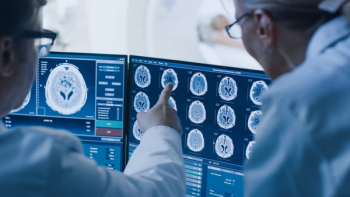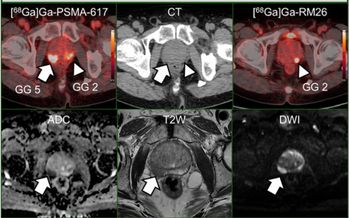
Vendors help European hospitals stricken by hundred-year flood
Most imaging manufacturers avoid damageImaging equipment manufacturers have for the most part escaped damage caused by the worst flooding in decades in Europe, but some of their customers have not been so lucky. Major vendors are
Most imaging manufacturers avoid damage
Imaging equipment manufacturers have for the most part escaped damage caused by the worst flooding in decades in Europe, but some of their customers have not been so lucky. Major vendors are rallying around hospitals in southern Germany, Austria, and the Czech Republic, where rising floodwaters have impaired or damaged medical imaging equipment.
Freak rainfall is being blamed for extensive flooding that has wreaked havoc from the Black Sea to the Swiss Alps in mid-August, traditionally a time when Europeans make the most of the summer sunshine. Residents from across Central and Eastern Europe evacuated homes and businesses in droves, as swollen rivers burst their banks and breached sandbag defenses.
The medical imaging industry in Europe has been reasonably unscathed. It was business as usual last week for staff at the Siemens Medical Solutions manufacturing plant in Erlangen, Germany, which is located about 75 miles away from the raging Danube River. Staff at Schering's European headquarters in Berlin could also breathe a sigh of relief that production of their contrast media was not sited farther southwest at the Bitterfeld chemical plant, in nail-biting range of the fast-flowing Elbe River.
Regional sales offices in flood-affected cities managed to keep dry, too. Both Schering and GE Medical Systems have offices in Prague, a city that has borne the brunt of the abnormally high water levels. Both reported, however, that their offices remained watertight, and that delays in traveling around the city posed the only real problem.
Towns and cities close to major rivers have been most affected by what are being described as the worst floods in perhaps a century. Prague's historic city center became submerged under several feet of water as the river Vltava overflowed to fill nearby streets. Slovakian officials declared a state of emergency in the capital, Bratislava, in response to the Danube's continued rise, while in Germany the army stepped in to move 3600 patients from hospitals in Dresden to clinics as far as 350 miles away, after the Elbe burst its banks.
Imaging equipment manufacturers are now considering how they can best help their clients, some of whom were not quite as fortunate as they. Siemens Medical Solutions has put aside ¤15,000 for emergency aid to clients in Eastern Europe. The company has set up a free telephone hotline to deal with immediate queries. Siemens' field service engineers have also been recalled from vacation to provide on-site support in hospitals with water-damaged scanners.
Philips Medical Systems was similarly quick to respond to the crisis, as were their clients. Most radiology departments in Germany with Philips imaging equipment reported they had moved their equipment in time or managed to keep the flood waters at bay. Just one MRI system, at a hospital in Meissen, was damaged. German customers may still take advantage of Philips' offer to perform free functional checks on all imaging equipment.
Clients in the Czech Republic reported similar close calls. Flood waters in the town of Èeske Budejovice, in southern Bohemia, came close to but did not reach the hospital, which is home to Philips CT and MR scanners. And although the Hospital na Frantisku in Prague was evacuated, only the cellars flooded, sparing the Philips CT and x-ray equipment.
One of GE's suppliers in the Prague area, a small company manufacturing radiopharmaceuticals, was not so lucky. Their PET Tracer production system was swamped as the waterline rose. Negotiations are under way to figure out the best deal for repairing the damaged equipment. Over in Germany, GE is still collecting details on the precise problems its customers are facing. The company has made uninstalling and replacing affected systems top priority and is also offering to lend imaging equipment to radiologists throughout the country, whether there are existing clients or not.
Businesses in the region, both in and outside of medicine, will be hit by cleanup costs when the waters recede as well as the loss of earnings during the deluge and its aftermath. The German government has set aside E100 million for emergency aid and promised up to E285 million more in low-interest loans. The European Union is also offering financial aid to the Czech Republic, Austria, and Germany.
Newsletter
Stay at the forefront of radiology with the Diagnostic Imaging newsletter, delivering the latest news, clinical insights, and imaging advancements for today’s radiologists.













